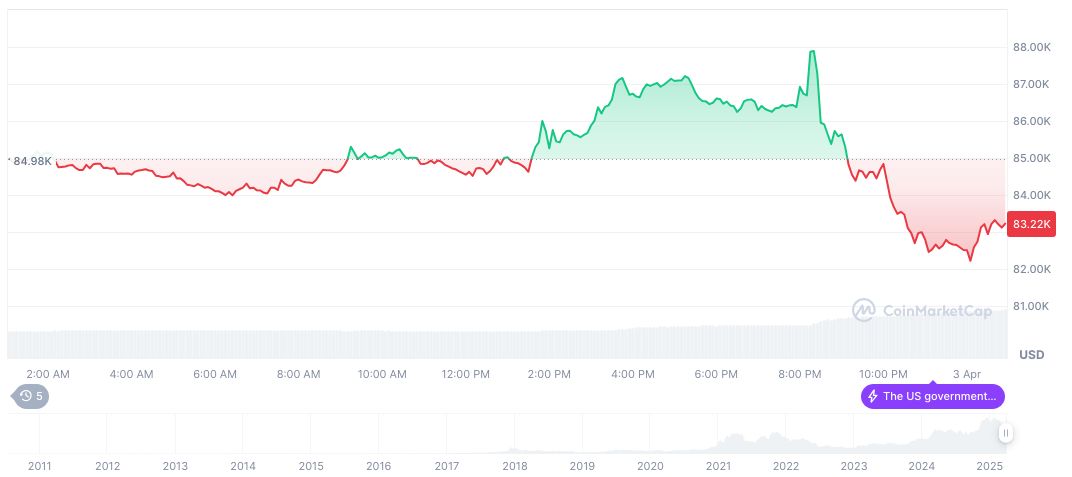







































Bitcoin Market Eyes Impact of Hayes’ Economic Analysis
 BTC
BTC
 IMX
IMX
 ARTHUR
ARTHUR
 READ
READ
 RSRV
RSRV
- Arthur Hayes analyzes U.S. Treasury market amid Trump’s tariff plan.
- Potential monetary policy shift could affect Bitcoin prices.
- Fed intervention may influence cryptocurrency market dynamics.
Arthur Hayes, BitMEX co-founder, has drawn attention by analyzing Trump's tariff plan's potential impact on the U.S. Treasury market.
The analysis highlights possible shifts in monetary policy, influencing cryptocurrency dynamics. Bitcoin's price reacted to recent geopolitical and economic changes.
Arthur Hayes' Analysis and Its Crypto Implications
Arthur Hayes discussed the potential effects of Donald Trump's tariff plan, emphasizing its impact on the U.S. Treasury market. Hayes noted that without dollar exports, foreign investors may find it challenging to purchase bonds. The Federal Reserve may need to intervene to maintain market stability.
Observers suggest a return to loose monetary policy as a result of Hayes' analysis. Such a move could impact macroeconomic conditions globally and might lead to changes in cryptocurrency markets. Bitcoin and other digital assets linked to these macro conditions could be influenced.
"Trump’s tariff plan further proves his commitment to reversing these imbalances. The issue for U.S. Treasuries is that without dollar exports, foreign investors cannot purchase bonds. The Federal Reserve and the banking system must intervene to ensure the normal functioning of the Treasury market, which means restarting loose monetary policy (Brrrr)." — Arthur Hayes, Co-founder and former CEO, BitMEX
The cryptocurrency community has monitored these potential developments closely, assessing Hayes' insights. Some experts are pointing to possible market volatility due to impending monetary policy shifts. His statement has sparked numerous discussions among crypto analysts and industry veterans.
Bitcoin Price Trends Amid Market Volatility
Did you know? Historically, periods of quantitative easing, similar to what may follow Trump's tariffs, often see increased liquidity. This typically benefits Bitcoin prices, as investors prefer decentralized assets during such monetary expansions.
Bitcoin currently trades at $82,161.27, with a market cap of $1.63 trillion and market dominance at 62.00%, according to CoinMarketCap. Over the last 24 hours, the trading volume reached $51.21 billion, and the price dropped by 5.44%. Bitcoin has experienced a 16.28% decline over the past 90 days.

Experts from Coincu indicate that potential Fed interventions could strengthen Bitcoin as a hedge against inflation. The macroeconomic environment remains crucial for digital assets, with liquidity shifts likely impacting investment behaviors. Analysts stress the importance of monitoring monetary policy changes and their long-term consequences for cryptocurrency markets.
Read original article on coincu.com
